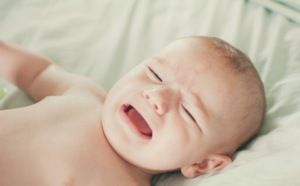News
News in Brief: Are Danish parents “lucky” their babies don’t cry as much as other countries?
This article is more than 8 years old.
In other news, Danes aren’t applying enough sunscreen or empathetic enough to obese people; and exactly how many Americans are there in Denmark?

It’s bad news, little one. Your mother is British (photo: Beth)
Danish parents are “lucky” according to British newspaper the Guardian because they experience the lowest rate of colic – when a baby cries for at least three hours a day – according to a meta-analysis of 28 previous studies. Colic was found among just 5.5 percent of infants aged three to four weeks in Denmark, compared to among 28 percent of British infants aged one to two weeks. Canada and Italy also had high rates, while Japan and Germany were just behind Denmark. Experts concluded that the colic rate is low because Danes spend more time with their children. They also attributed the difference to lengthy maternity leave, more babies sleeping outdoors, high rates of breastfeeding, good old patience and acceptance – and not bunging the baby off to the maternity ward as soon as it’s been born so the parents can sleep.
Danes: Obese people have themselves to blame
Just under a quarter of Danes reckon it’s perfectly fair for an employer to decide against a candidate if they are obese, according to a Megafon poll carried out for TV2 and Politiken. According to the survey, 82 percent agreed with the statement that ‘obesity is first and foremost responsibility of the individual’, with only 7 percent blaming society and 6 percent blaming the individual’s upbringing. Doctors are concerned there is not enough understanding of eating disorders, which they believe are responsible for a high proportion of the cases. The survey also revealed that 24 percent feel sorry for obese people, and that 32 percent think obese people need to ‘pull themselves together’ if they see them eating ice cream or drinking a full sugar soft drink.
READ MORE: Parents with short educations more likely to have obese kids
Danes need to improve sunscreen application
While Danes are better at protecting themselves from the sun than they were 20 years ago, they still have a long way to go before they can match the standards of sunscreen application given to our children. Adults need to apply an ‘adult amount’ to their skin – on average, we tend to only smear one third of the recommended amount – and at least 20 minutes in advance of going out into the sunshine, warns Miljøstyrelsen, the environmental protection agency.
READ MORE: Strange video implores residents of sunny climes to help pale-skinned Danes avoid sunburn
US national rate up by a third
Danmarks Statistik struck clickbait gold with its post-Brexit stats about Brits living in Denmark and has followed it up with figures on US immigrants living over here. In total, as of January 1, there are 8,564 – up by over a third from 6,131 in 2007 – of which 972 also have Danish citizenship. Broken down, 2,134 are studying in Denmark, 1,992 have work permits, and 1,503 people are here on reunification. In addition, there are 736 American or partly-American children.
READ MORE: Expat to be deported from Denmark after 32 years in the country










































